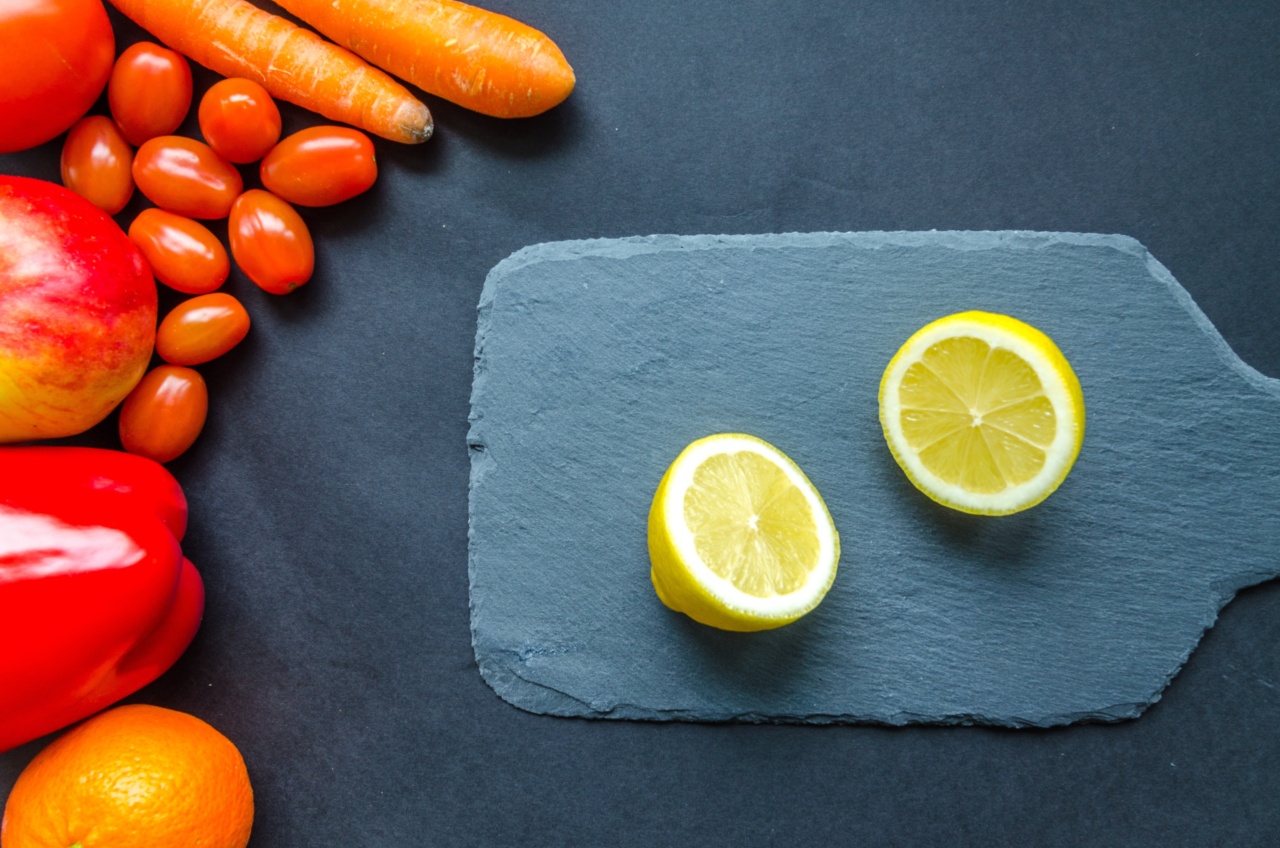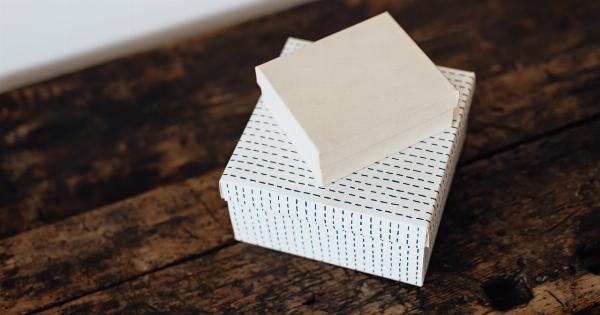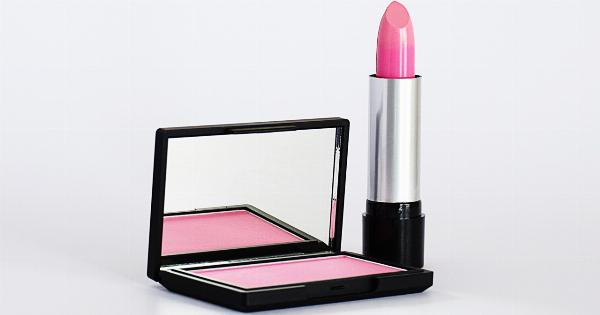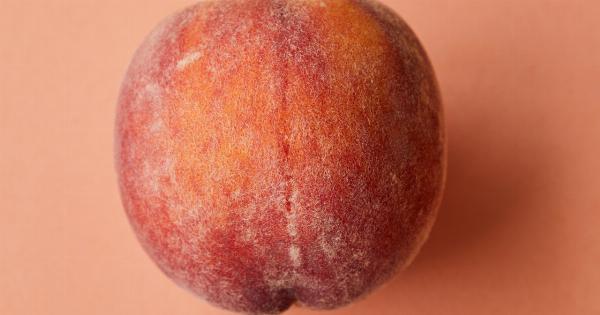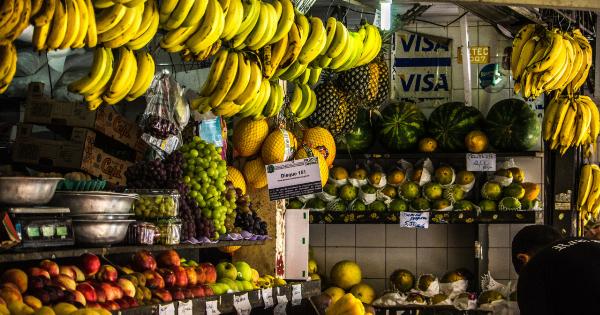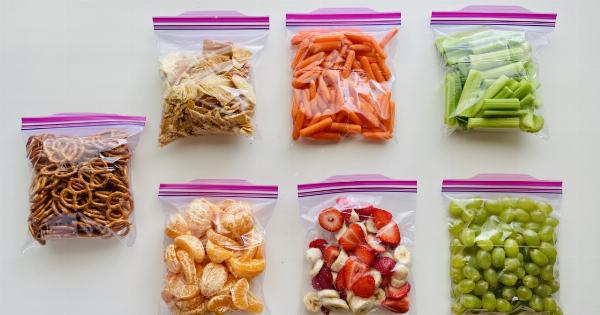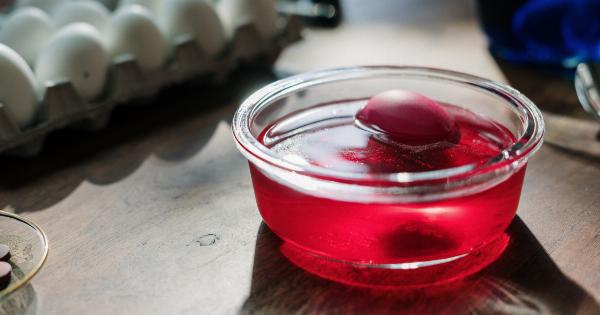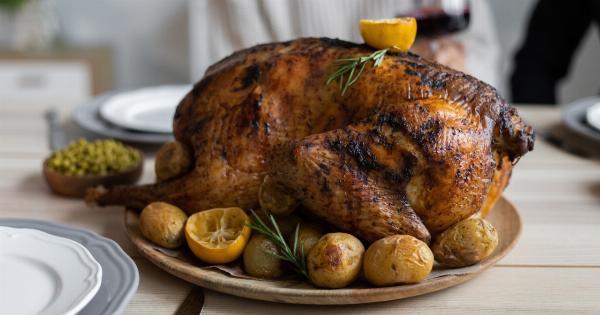Fruits and vegetables are essential to a balanced diet, rich in nutrients and vitamins that keep us healthy and strong.
But improper storage of these healthy foods can quickly lead to spoilage, wasting all the valuable benefits they bring to our bodies.
Here are the top 30 tips for properly storing fruits and vegetables and maximizing their shelf life:.
: Storing Fruits
: 1. Bananas
Leave bananas at room temperature for up to five days. Do not store them in the refrigerator, as they will become overripe and turn black.
: 2. Apples
Apples can be stored at room temperature for up to a week. If you want to keep them fresh for longer, store them in the refrigerator crisper drawer.
: 3. Citrus Fruits
Store citrus fruits, such as lemons, limes, oranges, and grapefruits in a cool, dry place, such as a fruit bowl on a kitchen counter or in a pantry. They can last for a week or more at room temperature.
: 4. Berries
Berries should be stored in the refrigerator, either in their original packaging or in a sealed container. They are very perishable and should be consumed within two to three days.
: 5. Grapes
Grapes should be stored in the refrigerator until you are ready to eat them. This will keep them fresh for up to a week.
: 6. Pineapple
Store pineapple at room temperature until it ripens and develops a golden color. Once ripe, store it in the refrigerator.
: 7. Melons
Store whole melons at room temperature until they ripen, then move them to the refrigerator. Cut melons should be stored in the refrigerator and consumed within three to four days.
: 8. Stone Fruits (Peaches, Plums, Nectarines, etc.)
Stone fruits should be ripened on the counter, then stored in the refrigerator. They will last up to a week.
: Storing Vegetables
: 9. Leafy Greens
Leafy greens, such as lettuce, spinach, and kale, should be stored in the refrigerator in a sealed container or plastic bag. They can be washed and dried before storing, or washed just before using. They will last up to a week.
: 10. Carrots, Celery, and Radishes
Root and stem vegetables should be stored in the refrigerator crisper drawer, in a plastic bag or storage container. They can last up to two weeks.
: 11. Broccoli and Cauliflower
Broccoli and cauliflower can be stored in the refrigerator in a plastic bag or storage container. They should be used within three to five days.
: 12. Cucumbers
Cucumbers can be stored at room temperature for up to three days, or in the refrigerator for up to a week.
: 13. Peppers
Peppers can be stored in the refrigerator up to a week. If you have cut peppers, store them in a sealed container or plastic bag.
: 14. Eggplant
Eggplant should be kept in a cool, dry place, away from moisture and sunlight.
: 15. Tomatoes
Tomatoes should be stored at room temperature until they are ripe, then moved to the refrigerator. They will last up to a week in the refrigerator.
: 16. Onions
Onions should be kept in a cool, dry place, away from direct sunlight. They can last up to two months in this environment.
: 17. Potatoes
Potatoes should be stored in a cool, dark place, such as a pantry or cupboard. They can last up to two months in this environment.
: 18. Winter Squash
Winter squash, such as acorn or butternut squash, should be stored in a cool, dry place, such as a pantry. They can last up to three months in this environment.
: Additional Tips
: 19. Check Expiration Dates
When buying fruits and vegetables, check the expiration dates to ensure you are not buying food that has already expired. Make sure you buy only the amount you think you will eat before they expire.
: 20. Clean Your Fridge
Clean your refrigerator regularly to prevent the growth of bacteria and mold that can cause fruits and vegetables to spoil faster.
: 21. Avoid Overcrowding
Avoid overcrowding your refrigerator, as this can cause food to spoil faster. Make sure there is adequate space for air to circulate around the food.
: 22. Keep Your Fridge Cool
Set your refrigerator temperature to between 35-40°F, to keep fruits and vegetables fresh for the longest possible time.
: 23. Avoid Direct Sunlight
Keep fruits and vegetables away from direct sunlight, as this can cause them to spoil faster.
: 24. Do Not Wash Until You are Ready to Use
Avoid washing fruits and vegetables until you are ready to use them, as excess moisture can cause them to spoil faster.
: 25. Store Fruits and Vegetables Separately
Fruits and vegetables release different gases that can cause other produce to ripen or spoil faster. Store fruits and vegetables separately to prevent this from happening.
: 26. Use Paper Towels
Line the bottom of storage containers with paper towels to absorb excess moisture and prevent bacterial growth.
: 27. Use Glass Containers
Use glass containers instead of plastic containers, as they do not contain harmful chemicals that can leach into food. They are also more durable and long-lasting.
: 28. Use Reusable Produce Bags
Use reusable produce bags instead of plastic bags when shopping for fruits and vegetables, to reduce waste and protect the environment.
: 29. Freeze Excess Produce
If you have excess produce that you cannot consume before it spoils, consider freezing it for later use.
: 30. Donate or Compost
If you have produce that you cannot use or freeze and that is still fresh, consider donating it to a local food bank. Alternatively, compost it to create nutrient-rich soil for your garden.
